Tuesday 8 July
Here's what's happening today:
Conference Sessions (Rooms 1 - 6)
- Opening Keynote Room 1
- Tracks: Business, Coding, Design, Discoverability, Mobile (Rooms 1, 3 & 4)
- Mobile Track (Room 2)
- Games:Edu Track (Room 5)
- Free Roundtables (Room 6)
Networking
- Meet@Develop Meeting Zone (Expo Gallery 2nd Floor) - Find out more HERE
- 18.00 - 20.00: Develop:Brighton IceBreaker in the Metropole Bar everyone with a Develop pass welcome!
- 19.00: RaiseTheGame Festival Of Food at Shelter Hall.
- 19.30 - 23.30: Poker Tournament in support of GamesAid in the Sandringham Suite at the Hilton Metropole
Please note: No Expo today, the Expo is open on Wednesday and Thursday only.
Lunch
- For Conference Pass holders only (Expo Gallery 2nd Floor)
Free Creche
- Find out more HERE
Downloads
Conference Programme Event MapTodays sessions
9:45am
KEYNOTE: The Spirit of Adventure – Bringing Indiana Jones Back to Gaming
A fireside chat with MachineGames’ Design Director Jens Andersson and Audio Director Pete Ward. This session promises an engaging discussion about the challenges and triumphs of adapting the legendary Indiana Jones IP for a modern gaming audience.
Hosted by: Kate Edwards, Geogrify/SetJetters
Welcome: State of the Nation, Education and Industry Opportunities
Brief welcome and overview of the Games:Edu track from Dr Tom Cole and Laurence Oldham.
Followed by an expert panel, focusing on the challenges and opportunities for education and industry. The panel will bring their diverse perspectives and many years of practical experience to provide a grounded view of where we are today and where we could be. This will be followed by a Q & A session and provide a solid foundation for the workshops and discussions that will be held throughout the day.
Session Takeaway
- A wide ranging view of the challenges and opportunities facing industry and education as seen and informed by the panel of experts
- A chance to ask the experts about their findings and experience
11:00am
Designing Together: The Power of Collaborative Game Design on Monument Valley 3
The third installment in the beloved, award-winning series, Monument Valley 3 was released in December 2024 to widespread acclaim from both the media and players. The Guardian praised its innovation, noting that 'with its more natural forms and shapes, it breaks some of the rules of Monument Valley, mixing and matching styles and ideas more freely’.
I joined the Monument Valley 3 team as a senior designer during its early pre-production stage. In this talk, I will share how fostering creativity across all disciplines (e.g., programmers, artists, producers, and QAs) contributed to Monument Valley 3’s design and what role designers play when ideas can come from everywhere.
By encouraging input from the entire team, we gained fresh perspectives that enriched the game and led to more diverse and innovative design. But this doesn’t mean designers are less important. They play a crucial role in shaping ideas into cohesive and engaging experiences.
Session Takeaway
- Create a pressure-free playground for the team to play - using a loose framework and handy tools
- While everyone contributes creatively, you’ll learn how designers play a crucial role in shaping ideas into cohesive and engaging experiences
- If you want your artists to fix the remaining issues in your design, you need to help them fully understand your design first
Leading New Frontiers in Mobile
Game Lead Charmie Kim from Supercell and General Manager Felicity Gracie-Herst from Trailmix join mobilegamer.biz founder Neil Long to discuss the challenges of designing and operating innovative games amid uncertainty, adapting to shifting consumer tastes, and more...
Superpowers in Diversity: Managing Mental Health and Neurodiverse Teams for Success
Neurodiverse individuals bring exceptional strength, creativity, hyperfocus, attention to detail, and resilience—that can transform teams and foster innovation. However, these unique talents often go unrecognized or underutilized due to a lack of understanding about neurodiversity and its impact on team dynamics.
In this session, we’ll explore the unique strengths of neurodiverse individuals contribute to the gaming industry, supported by actionable insights. From creativity that drives innovative game design to hyperfocus that ensures precise execution, attendees will gain a deep appreciation for the value of neurodiverse minds. We’ll also address practical strategies for fostering inclusion and creating supportive team environments. Topics include tailoring workflows, using technology to improve communication and accessibility, and providing meaningful accommodations that empower neurodiverse team members to thrive. We’ll highlight how to overcome biases, build psychological safety, and foster a culture of trust and collaboration.
Attendees will leave with actionable takeaways, including steps to start open conversations about neurodiversity, strategies for developing inclusive hiring practices, and tools to support team members’ unique needs. By embracing neurodiversity, you’ll not only drive innovation and creativity but also build stronger, more inclusive teams that set your studio apart in a competitive industry.
This session is for anyone this session is for everyone, from the curious to the already passionate about creating inclusive, and high-performing teams—no prior knowledge of neurodiversity required. Let’s unlock the extraordinary potential of neurodiverse talent together.
Session Takeaway
- Neurodiversity as a Strength:
Neurodiverse individuals bring unique problem-solving, creativity, and perspectives that drive innovation
Recognizing these "superpowers" enhances team performance
- Inclusive Environments Lead to Success:
Flexible accommodations and open communication foster well-being and productivity
Mental health awareness benefits the entire team
- Personalized Approaches Build Stronger Teams:
Adapting to individual needs creates a culture of trust and collaboration
Embracing diversity ensures long-term team success.
From Constraints to Creativity: The Art and Science of Procedural Level Design
Procedural level generation is more than just a clever algorithm—it’s a tool for unlocking creativity, streamlining workflows, and delivering unique player experiences. In this session, we’ll take you behind the scenes of Unseen Diplomacy 2 to showcase the innovative design and development of its procedural level generation system.
The key design constraints that made procedural generation the right choice will be shared and we’ll explore how we structured a system that puts control into the hands of designers and artists. You’ll see how this approach not only fosters creativity but also makes procedural systems accessible and adaptable for teams of any size or composition.
We’ll break down the graph-based workflows that formed the foundation of our system, offering insights into making complex tools intuitive for designers while retaining technical control. We’ll discuss practical lessons learned, from prototyping to production, and how these workflows can be applied across different game genres.
The session will also cover integrating QA into procedural pipelines, focusing on how to create meaningful, actionable feedback loops and tackle the unique challenges of debugging dynamic content.
Finally, we’ll share a case study of the custom tools we developed, revealing what worked, what didn’t, and how these lessons can help you wrangle the complexity of procedural systems in your own projects.
Whether you’re a programmer, designer, or tools specialist, this talk will equip you with the strategies and insights to make procedural generation a core part of your creative toolkit.
Session Takeaway
- A data oriented method for procedural level designs that encourages collaboration between programmers, designers and artists - allowing creatives to direct the level and be creative
- Lessons learnt taking a prototype to production quality and the tooling built along the way
- How to wrangle the complexity of a procedural system, the extra challenges it brings and how to adapt it to your team size
An Unreal Future: Foundations for Student Success
This session will address the ongoing and increasingly complex challenge of preparing students for successful careers in the games industry. Preparing students for a future in the games industry is an ever evolving challenge. This session will explore the challenge of aligning curriculum to industry needs, the use of student collaborative projects and observations of how the landscape of UK games education is changing.
Drawing on over 15 years of experience with Unreal Engine—as a hobbyist, educator, and professional. James will offer a dual perspective informed by both his time teaching in higher education and his current role at Epic Games. The talk will explore effective strategies for integrating collaborative student projects into curricula, highlight recent developments within UK games higher education, and propose actionable steps that institutions can take to support student success.
Session Takeaway
- Practical models for student collaboration in project-based learning.
- Observations from the evolving UK games education sector.
- Strategies for enhancing student preparedness for industry roles and alternate paths for success.
Develop: FTUE (First Time User Experience) Tuesday
A relaxed and informal roundtable designed to help you get the most out of your time at the conference. A diverse panel of friendly and experienced devs from across the whole industry spectrum want to help anyone who feels shy, awkward, a little out of place, on the outside, or just unable to really squeeze all the goodness out of this amazing show. You'll feel positive, empowered and fully equipped to have an absolutely smashing time, with tips on how to be productive, tools to network, and commitments from volunteers to be your safety net should things get a little too much! Finally, should you feel like it would help, we'll match people up with Show Mentors to ensure however long you're in Brighton, you go back to your studio feeling invigorated and inspired!
Session Takeaway
- Shared experiences that will give you some ideas on best practise plus do's and dont's for networking at every event.
- Recommendations for talks to attend and delegates to meet, plus practical help to do so!
- Knowledge of safe and quiet spaces to help manage your experience at the show
- Introductions to helpers who you can approach throughout your visit if you need a friendly face!
12:00pm
43 Essential Game Dev Tips That Are Immutably Correct and Must Never be Disputed by Anyone Ever!
Game development advice is often a ludicrous minefield of abject nonsense, posturing and unserious pontification - will this talk be any different? During this session, Paul will break down a selection of common themes, problems and points of contention that can arise during any game development project and attempt to establish whether universal gamedev wisdom truly exists.
The talk will take on a very wide scope, from game design to technical issues and on to legal and commercial matters. Its objectives are to provoke discussion within teams, provide a reminder of some basics that are readily forgotten in the heat of production and encourage developers to challenge convention.
Session Takeaway
- How to design and pitch commercially competitive games without compromising creativity
- Key company building fundamentals for indie developers
- A delightful selection of stimulating tips to argue about with your team
Mobile Gaming in 2025 - What Can We Expect Based on Data?
What are the current data-backed trends in mobile gaming? Specifically, which genres are experiencing growth or decline? What is the projected growth for the coming months? Is there room for new game development and studios, and how does mobile gaming funding compare to other gaming areas?
Session Takeaway
- Deep insights about mobile gaming (comparing to gaming in general)
Social Media and Vertical Video: Catching Attention in Seconds
This session aims to catch the attention of the masses. Social media is a constantly evolving beast, and more than ever it’s important to know how to stop someone in their tracks to pay attention to your project while they’re confronted with a million other pieces of media demanding their eyes.
Social media is an even playing field at its core but that means anyone can play. If you want to compete you’re not only on that playing field with the best of the best, but a sea of other content. We’ll explore trends, why they work, what to learn from the first second of successful vertical videos, and what you can learn from your doomscrolling every day.
This session will also dissect the parts of TikTok you may, as a user, be unfamiliar with. The importance of sounds, hashtags, post timing, thumbnails, captions, and more. Success on social media isn’t totally random or based on luck - there are foundations laid beneath many viral videos that as a user you wouldn’t recognise, but as a creator, you’ll need to know. Let’s set your accounts up for success.
Session Takeaway
- How to analysis the ways in which TikTok content is appealing to the viewer, and thinking critically about how that can apply to their use of the platform
- How to capitalise on a game’s aesthetic choice/history/subject matter to lead your social strategy
- Thinking critically about how to make your content the best it can be within the ‘rules’ of vertical video success on TikTok and beyond
Why Cultural Recognition is Crucial to the Future of the Games Industry
This session will explore why the ongoing effort to ensure games are recognised and celebrated as a true art from, alongside the best of the other screen and creative industries, is not just a nice-to-have, but is critical in the future success of the industry.
It will look at how creating a better understanding and appreciation of our sector and creative work will foster efforts to enact favourable policy, to get a seat at some of the most influential tables and to unlock greater public incentives. By widening the acceptance of our industry, we will increase and unlock markets of untapped potential, diversify player spend and create opportunities for new types of games to emerge.
Breaking down lingering misconceptions and stereotypes will vastly improve media coverage and cultural analysis of our art form, levelling the playing field of understanding and ensuring everyone from parents to politicians gives games their rightful fair consideration. And by celebrating and recognising best talents and diverse people of our industry, we can show that the games industry really is for everyone, ensuring the brightest stars of the future are inspired to join our industry, whatever their background.
Session Takeaway
- Understand the political, economic and market impacts of the wider cultural recognition of games
- Discuss the barriers and opportunities to funding that cultural recognition unlocks
- Reconsider the boundaries of games audiences or content and where untapped markets might be found
- A rising tide lifts all boats!
Workshop: Opportunities and Challenges
Working in groups of around six people, with a mix of academia, industry and those that bridge the two, this workshop will focus on collaboratively identifying and exploring the opportunities and challenges being faced by industry and academia.
Everyone will benefit from clearer communication of the challenges of one sector to the other. This session aims to encourage discussions, collaboration and reflection, and forge a clear understanding and common language around the challenges we are all facing. This will provide a group driven focus for the afternoon sessions where we will be looking at practical solutions to the opportunities identified.
Session Takeaway
- Discuss, share your own challenges and experiences with a broad range of people.
- Collaborative experience that builds both personal and practical links between industry and education.
- A clear understanding of the issues and opportunities faced by both industry and academia.
Burnout! How to Spot it and Put Out the Fire
Burnout is a silent threat that affects many in high-energy, fast-paced industries, including the gaming world. In this interactive roundtable discussion, I will draw on my personal experience of navigating burnout—not once, but twice—to guide attendees through the process of identifying burnout before it consumes them. This session will allow individuals to share their own experiences and symptoms of burnout, fostering a space where others can recognize these signs in themselves.
Drawing from both my own journey and practical insights, this roundtable will focus on how to spot the tell-tale signs of burnout in yourself, your colleagues, and within your team dynamics. Attendees will leave with a better understanding of early warning signals, such as emotional exhaustion, detachment, and decreased productivity, and how to recognize these symptoms before they spiral further.
But it’s not all doom and gloom! This session will also provide actionable strategies and techniques for combating burnout. Together, we will discuss how to foster a healthy work-life balance, set boundaries, and prioritize mental well-being in an industry that often demands the opposite.
This roundtable offers a chance for open discussion and collective learning, providing tools to manage and prevent burnout—both on an individual and team level—so that we can continue thriving in this exciting industry.
Session Takeaway
- Recognize the early signs of burnout—what it looks like—both in yourself and your colleagues
- Learn practical strategies to set boundaries, prioritize work-life balance, and integrate self-care routines to prevent burnout
- Develop a personal action plan for sustainable mental well-being, with tools to manage stress and foster a healthy, balanced approach to work
2:00pm
How to Raise Games Investment in 2025
Everyone is saying it: the global games industry is in a tough spot. Raising money for game development is more challenging than ever. And yet, opportunities remain. Deals continue to be done.
Fresh from raising nearly £130 million in December – Europe’s largest gaming fundraise in 2024, second only to the Epic-Disney mega-deal globally – Aonic hasn’t slowed down with its investments in games companies. In January, it invested £8 million+ in Turkish studio Mega Fortuna, with an option to acquire for nearly £60 million.
In this discussion with PocketGamer.biz Head of Content Craig Chapple, Aonic co-founder and Chief Product Officer Olliver Heins will reveal what investors are looking for when injecting cash into games studios, the process of actually making such investments and what founding companies can expect from it all. The discussion will cover all sides of the investment landscape, whether from the perspective of those investing in studios, studios receiving investment, publishers offering funding on a project basis, or similar.
Space will be given for the attendees to ask questions too, with candid answers given to help demystify the investment process.
Session Takeaway
- What: As a games studio in 2025, what are the avenues for investment?
- How: Advice from investor and developer side on standing out as a worthy investment
- Why: The key reasons why investments are worth pursuing (and why, in some cases, they might not be)
Captivating Player Experiences: Merging Sound and Narrative in Mobile Game Development
In mobile gaming, audio is sometimes overlooked as an isolated function; an afterthought to story and gameplay.
But what if sound and narrative worked hand in hand to elevate player experience? At Metacore, we’ve seen firsthand how integrating intentional sound design with strong narrative can result in deeper player engagement and longer playtime – Merge Mansion’s 55+ million downloads and loyal player community worldwide serves as our proof.
During the past 2.5 years, Sam Hughes, Audio Lead at Metacore, has built the company’s audio department from the ground with immersive, engaging audio across the global hit-game Merge Mansion. Under Sam’s leadership, Merge Mansion’s award-winning soundtrack and sound design has resulted in more players actively engaging with the audio, discussing it online, and even requesting for more.
This talk explores how sound can do more than set the mood—it can actively shape storytelling. During his session, Sam will explore the power of sound in creating unforgettable gaming experiences as well as the importance of smooth cross-departmental collaboration in game development.
Session Takeaway
- How audio enhances Merge Mansion’s storytelling, deepening player immersion and loyalty
- The role of audio: sound design as an important component of player experience, instead of just an add-on
- Practical& concrete learnings of cross-departmental collaboration in game development
Games Accessibility: 6 Tips from Concept to Postlaunch
Designing and developing games with disabled players in mind is vital if we’re to make games where Play Has No Limits. This session will outline the value and importance of making our games as accessible as possible by supporting developers at all levels with 6 practical tips to help them on their accessibility journey.
Session Takeaway
- An appreciation of the need to engage purposefully in making our games accessible for disabled gamers and understanding that accessibility barriers exist where the player feedback loop is broken
- That accessibility thought and support needs to start early so its embedded in your design and documentation to help avoid it ending up on the cutting room floor
- That developers will take the 6 tips with them back to their teams and studios to help them engage more thoroughly in making their games more accessible
Beyond the Logo: Rethinking Game Branding to Keep Pace with a Rapidly Evolving Marketplace
Game branding is more than just a logo paired with key art— it’s a bridge between the world you’ve built and the players you want to reach. . This talk explores how game branding has evolved alongside the industry, where it’s kept pace, and where it’s fallen behind.
Drawing from our work creating visual identities for PlayStation titles, we’ll share the strategies and creative principles that drive our approach. From why some logos resonate more than others to how custom fonts can save money while enhancing brand character, we’ll offer insights that are both practical and inspiring.
We’ll examine how subtle visual changes can shift a message, how to make limited budgets work harder, and—critically—how to design identity systems that strike the right balance between consistency and creative flexibility. You'll see how branding can act as a bridge between a game’s narrative and its audience, cutting through visual noise to leave a lasting impression.
Whether you're building a brand from scratch or refining an existing one, you’ll walk away with a deeper understanding of how thoughtful, adaptable branding systems can elevate your game and build lasting audience connection.
Session Takeaway
- Games have evolved from finite experiences to ongoing, perpetual content machines, as have their purchasing conditions
- Branding for these must also evolve—to become multi-sensory, cross-platform, and immersive identity systems, built to support the myriad types of content that exist within the modern gaming sphere.
- Building branding elements piecemeal wastes time and money. Instead, think holistically from the start and connect everything from trailer to logo to UI.
- Flexible identity systems are the future. Introducing our concept of flexibility scales to measure the inherent level of flexibility within your design system.
Industry-Ready Graduates: Bridging the Gap Between Game Education and Studio Expectations
With game development education often sold as a direct route into exciting careers, are we truly preparing students for the realities of the industry—or setting them up with false expectations?
Drawing from his background as an educator of Game Development, former Global Learning and Development Manager at Cloud Imperium Games, and now the Head of The Game Assembly UK. Matt Wilson shares insights from both education and studio life. Having taught at every level and worked cross-culturally with teams around the world, Matt brings a unique perspective on how to truly prepare aspiring developers for the demands of modern studios.
Until recently, studios were increasingly looking to European graduates, drawn to their discipline-specific, production-focused training. While rising costs and visa demands are changing that landscape, there’s still a lot to learn from how these institutions embed real-world skills and professional mindset into their teaching.
In this session, Matt explores what “industry-ready” really means today—from mindset and collaboration to production literacy—and how we can evolve UK education to deliver it.
Session Takeaway
- Learn what can be adopted from the methods and approaches used by leading European game schools to strengthen employability
- Define what “industry-ready” really means today, beyond qualifications
- Explore actionable ways education can better align with studio expectations through mindset, discipline focus, and practical experience
Representation in Games: Beyond the Surface
Games are becoming more diverse, but many still treat representation as an add-on rather than an integral part of design. This roundtable invites developers to discuss how representation can be embedded into mechanics, narratives, and player agency rather than just being an aesthetic checkbox.
Moderated by Lydia Cooke, a researcher in Queer Game Studies, this session will explore the challenges and successes of meaningful inclusion in game development. Key topics include:
- When representation affects gameplay vs. when it’s only aesthetic
- The challenges of selling diverse narratives to studios and publishers
- How identity shapes player experience, mechanics, and story structure
This is an opportunity for developers to share experiences, discuss obstacles, and explore how to create richer, more inclusive games.
Session Takeaway
- Understanding how representation can shape gameplay, not just aesthetics
- Sharing real-world challenges of pushing for meaningful diversity
- Connecting with other devs passionate about authentic representation
3:00pm
Murder She… Modularized? Authored Narrative in a Proc-Gen World
Want to make use of procedurally-generated written content without sacrificing creative intention? This session covers how, in immersive noir detective sim Shadows of Doubt, we tackled the challenge of combining authored narrative with proc-gen systems to create compelling and dynamic emergent gameplay. It explores how we took the radical decision to abandon scripted missions in favour of open world play, before offering practical insight into powerful tools and techniques – like a bespoke dialogue system and narrative modularization – used to create emergent narrative in a fully-simulated sandbox world.
Session Takeaway
- Writing for open-world and sandbox settings
- Establishing game lore without a traditional narrative structure
- Tips for combining procedural generation with scripted content
- Using modular systems to create emergent storytelling in sandbox simulations
Raising Your Game: How To Achieve Console-Like Experiences on Mobile
We begin by showcasing a variety of Android games, across a range of genres, that offer levels of quality, performance and user experience normally associated with high-end consoles. We then examine up to three case studies to explore how this was achieved, covering topics such as: coding best practises; development workflows; tooling and device recommendations; and profiling examples. We conclude with our vision for the future of gaming, where mobile games will continue to reach new heights, empowered and supported by Arm.
Session Takeaway
- What developers should be aiming for (high!)
- How to achieve this
- Where to go to get support
Product / Market Fit – What Does it Mean and How Do We Achieve it?
Over 18,000 new games were released in 2024. More than 90% of these new products failed - the reason is more often than not a lack of understanding of product / market fit and specific consumer needs. The essential truth is that it’s easier to make the right product for the market than it is to find a market for your product. To do so, the creative efforts need to align with a commercially viable outcome from the earliest stage of production.
This session looks step by step at what questions you should ask at what time in the lifecycle, and how research and data provide actionable insights to game design to ensure it has the right player segment focus. This will build a firm foundation for your commercial strategy, enabling direction for your go-to-market plan, and help optimise your live service roadmap.
Session Takeaway
- Alignment of Creative Vision & Commercial Realities
- A unified brand perception unites all teams behind one vision/ direction
- The game and marketing communication are aligned on the same audience and address key player motivations and benefits
Good Vibes Only - A Producer’s Guide to Successful Collaborations in Game Dev
The era of solo developers is over - these days even the most self-sufficient of us will inevitably end up relying on the support of others to release their game, whether that be platform holders, co-development teams, or a publisher or agency. Opening up your private creative process to others can be tricky, though, especially when you’re putting everything on the line.
Join experienced publishing producer Mj Lewis to get to grips with the importance of playing nice with others in game development - from structuring your systems and processes for easy collaboration, to building healthy and long-lasting working relationships even in times of conflict.
This session will give practical advice on how to be good to yourself and those around you in hectic, high-stress situations, without compromising on the quality of your game.
Session Takeaway
- Insight into what makes a good working relationship when you’re trying to ship a game
- Planning a project with collaboration in mind
- Establishing and maintaining healthy relationships
- Managing conflicts and worst-case scenarios
- Advice on looking after yourself and others during high-stress situations
Workshop: Solutions
Working in groups of around six people, with a mix of academia, industry and those that bridge the two, this workshop will focus on exploring solutions to the challenges and opportunities faced by us all.
Everyone will benefit from clearer communication collaboration and visibility in tackling the challenges we face. This session aims to encourage discussions and collaboration with a strong focus on practical actionable results, sharing of experiences and models that have been found to be successful, as well as lessons learned from those that have not yielded results.
Please note there is no requirement to have attended the morning sessions
Session Takeaway
- Discuss and share your solutions and approaches to tackling the issues we are facing with a broad range of people.
- Collaborative experience that builds both personal and practical links between industry and education.
- A series of practical actions to apply to the challenges you are facing.
Going Global – How to Maximise Your Sales Overseas
Given that the UK represents 8% of the global games industry, it is imperative that UK games companies develop proactive channels to sell their content around the world. This roundtable will help demystify international trade with practical guidance and advice from companies who are successfully distributing their games to overseas markets.
Session Takeaway
- Why sell overseas
- What markets are right for your business
- How do you build connections in international markets
4:00pm
You’re Probably Leaving Money on the Table - How Best to Leverage Your Back Catalogue of Titles
Using my experience of running IndieBI, Robot Teddy, and Uwu Biz, I will be taking the audience through all the ways you are likely leaving money on the table. You might have 1 title that's doing pretty well, or a large collection of back catalogue titles – it will be relevant to anyone already selling videogames. From things as simple as changing your pricing in Poland, to going through each platform's specific discount cool-down rules, to random acts of business development you might not know about, you will leave the session with information you can immediately act upon to increase your revenue, without sacrificing your long-term prospects.
My teams are directly responsible for managing 100s of millions of dollars of revenue a year, all from independent (not AAA) companies. I'll be able to share our strategies, dive into research that we haven't shared before, and showing you that with a little bit of effort on the less exciting parts of running a company, you can seriously boost your revenue and protect your studio’s future.
Session Takeaway
- Simple ways to increase revenue on all platforms, without sacrificing brand power
- Information about where you can sell your game that might not be obvious to you
- How to secure your studio’s stability by spending time gardening your portfolio of titles
From Inspiration to Innovation: How We Built on a Legendary IP
In 2015, I founded Reality Games with a mission to turn live data into immersive gameplay. We started small — with a snowstorm, a broken bike, and a game idea that eventually became Landlord Tycoon.
After 30 million downloads and years of iteration, we began working on Monopoly World, based on Hasbro’s iconic IP.
In this talk, I’ll share the reality of how a bootstrapped studio scaled up — and what it takes to turn a legendary brand into a next-gen mobile platform.
Session Takeaway
- Lessons from building (and surviving) a mobile game studio
- Insights into mobile user behavior, monetization, and scaling
- What it takes to innovate within one of the world’s most iconic IPs
Meme Your Way to Success
The gaming industry is rapidly evolving with the rise of User-Generated Content (UGC) platforms like Roblox This shift necessitates new marketing strategies distinct from traditional game marketing. Attendances will able to understand the challenges of UGC games publishing and how to leverage new marketing strategies like adopting meme content to drive engagement of their live-ops games.
Session Takeaway
Walking out of the room, attendees will:
- Have a solid understanding of how to create a successful marketing strategy for their UGC games
- See real-world examples of successful campaigns
- Learn the right questions to ask when things may go wrong
Cut an NPC and Your Whole World Bleeds: The Importance of the Ephemeral in Interactive Storytelling
When we think of a game’s narrative, we often think of the core plot, the central driving force behind the actions of the player character, or the path we carve immediately ahead of them. In contrast, people in the business of storytelling will often repeat that “narrative is everything”. It’s true, but often not well explained… This talk seeks to demonstrate to those outside the narrative discipline exactly what is so important about the ephemera of storytelling - why the content of that NPC’s dialogue, that radio broadcast, that letter, need as much attention as any other aspect of a game’s story.
Session Takeaway
- What *is* narrative ephemera?
- What do those in the narrative discipline mean when they say “everything is narrative”?
- What kind of impact can well-executed narrative ephemera have on a game?
- What are the consequences of ignoring ephemera in narrative world building?
- How can we do narrative ephemera *better*?
Practical Solutions Panel: Insights from the Experts
A broad and expert panel from academia, industry and those that bridge the two, will provide a unique overview of the support mechanisms, solutions and frameworks they have used and provide to successfully deliver and capitalise on the challenges and opportunities we are facing. This will be flowed by a Q & A session and provides a grounding to the final workshop.
Session Takeaway
- A series of applied solutions to the problems both industry and academia are facing
- A chance to ask the experts about their experiences
Getting Girls into Game Development - Starting Early
Katherine and Kippie have been delivering game development workshops to girls in Northern Ireland aged 11 - 14 since 2017. In that time she has learnt a lot about why girls don’t always feel like they have a future in game dev, particularly when it comes to code, and how to challenge that mind set. During this Roundtable she will examine the reasons for this, looking at how the media portrays programmers and gamers in general, why IT education in port primary schools is failing young women in particular and the importance of positive role models. She will share her experiences, successes, failures and what she has learned from working with her students. She will look at how she has learned to teach game dev and coding in a ‘no pressure’ nurturing environment, the importance of fun and exploration, and why, as a tutor, making mistakes is one of the best things you can do.
Session Takeaway
- Why girls aren’t studying coding at school
- How to make coding more appealing for girls
- How the media is perpetuating stereotypes that are harmful for girls
5:00pm
Designing in the Co-Development World
With the industry shifting into more of a co-dev environment, this session goes through some of the differences this change can highlight. Designing as a co-dev partner is not the same as being part of an in-house design team. There are pitfalls and opportunities aplenty. Having worked as both an in-house and co-dev designer, Hal has the direct experience to be able to compare the two.
In this session, he focusses on some of the difficulties co-dev design can face, and strategies to allow both parties to overcome them and ultimately work better together.
Session Takeaway
- Strategies for dealing with uncertain design phases, such as prototyping and preproduction
- Methods for having that difficult conversation – when you have to say “no”
- Finding the signal in the noise – effective communication
Beyond The Banner. Rethinking Monetisation - It’s in the Game
No game developer ever said: ‘yeah lets put more ads in my game’. But every studio asks how do I make more money?
Monetisation of free-to play mobile games has never been so challenging with ad fatigue, searching for the elusive whales and regulatory restrictions.
Kristan Rivers CEO and Co-Founder of AdInMo will explore the shift towards hybrid monetisation, looking at progress so far and common developer challenges. He will talk about why player experience and making money are not mutually exclusive, and why non-interruptive in-game formats are helping mobile game developers think 'beyond the banner' to advance both monetisation and retention strategies.
Session Takeaway
- A deeper understanding of hybrid monetisation strategies
- How to design for in-game ads
- Real studio insights on monetising with in-game advertising
The Ouroboros Express - A Postmortem
The game devs: Applying for jobs. The industry: On fire. But did that keep this scrappy team down? Nope. This is the story of how I directed a game team of 40 to develop a fully-voice acted visual novel game on Steam with high-quality production processes. Dig into our tech stack, ways of working, lessons learned and more.
Session Takeaway
- Nitty gritty production practices on 0 budget
- Managing and motivating a team
- Communication and collaboration best practices
PowerWash Simulator: A Deep and Dirty Tech Dive
The global hit PowerWash Simulator is an unusual concept that brought many unusual technical challenges. From its Dirt Pipeline that allows rich level editing whilst adhering to strict technical requirements, to very data-intensive save logic and multiplayer, many bespoke solutions had to be built to support its development.
Its immediate success on Early Access, and later on all last and current-gen consoles, pushed the boundaries further: with more and larger levels running on more platforms, other highly scalable solutions were needed to ensure a productive content pipeline (asset management, CI/CD, content validations, DLCs) and gameplay experience (multiplayer, runtime performance).
This talk will cover many dirty – and clean! – tricks pulled in Unity and C# to bring the game to life.
Session Takeaway
- Approaches on managing asset-heavy Unity multiplatform projects
- Overview of a high-performance save data system in Unity
- A flexible custom build pipeline in Unity
Workshop: Solutions Round-up
Working in groups of around six people, with a mix of academia, industry and those that bridge the two, this workshop will take the solutions derived from the workshops and the information garnered from the panel, to outline, challenge and refine potential solutions. These will then be presented to the broader group for feedback and input, leading to a series of practical proposals / approaches to the challenges and opportunities outlined earlier in the day.
Please note there is no requirement to have attended previous sessions
Session Takeaway
- Input on and interrogate solutions and approaches to tackling the issue we are facing with a broad range of people.
- Collaborative experience that builds both personal and practical links between Industry and Education
- A series of practical proposals and concrete ‘next steps’ to the challenges you are facing and people who can help with them.
The Funding Gap: What Developers & Funders Need to Know
Access to funding is possibly the biggest challenge to the games industry now, join the Pitchify team to discuss the key issues from both the perspective of developers, and funders. What does, or could, or even should, the future of funding look like?
Session Takeaway
- Challenges in accessing funding in the games industry
- Perspectives on funding from both developers and funders
- Current issues surrounding game funding such as missing data, market analysis
- Future of funding in the games industry — what it does, could, or should look like
- Role of platforms (like Pitchify) in bridging developers and funders
- Equity and accessibility in funding—who gets left out and why
Tuesday 8 July Official Events
18.00 - 20.00: Develop:Brighton IceBreaker in the Metropole Bar everyone with a Develop pass welcome!
19.00: RaiseTheGame Festival Of Food at Shelter Hall.
19.30 - 23.30: Poker Tournament in support of GamesAid in the Sandringham Suite at the Hilton Metropole










































































